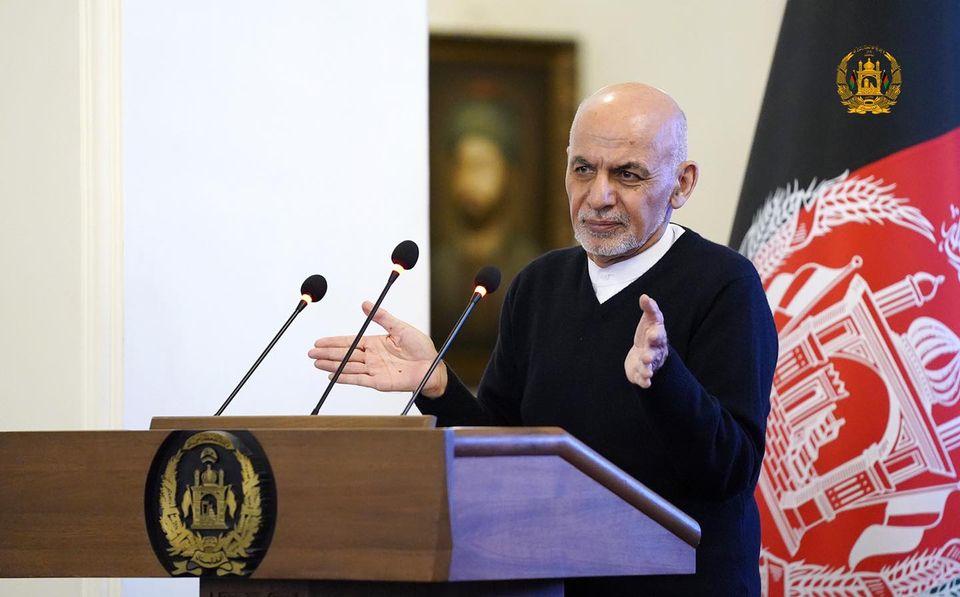KABUL (Pajhwok): Former president Ashraf Ghani has said he would not return to Afghanistan under Taliban’s rule until all Afghans felt a sense of belonging and Afghan women, youth, and the poor became stakeholders.
On August 15 last year, the previous government collapsed and the Taliban took over and the same day former president Ashraf Ghani fled the country and a few days later the UAE announced granting refuge to Ghani on humanitarian grounds.
In a fresh interview with PBS NEWS HOUR, Ashraf Ghani said he was firmly committed to defending his people and forces in the public to the last minute he could.
He said he left Afghanistan as the last person in the chain of command because the Afghan forces could no longer sustain.
“I had no one to fight with me. It was not a situation where sacrificing myself would have saved the republic. On the contrary, it would have created another trauma. And we have had enough of trauma in our history.”
He recalled the presidential guard collapsed and he was ready to go to the Ministry of Defense, but the ministry was completely empty.
“And when the national security adviser and the head of BPS came, they give me two minutes, with the information that everything had collapsed and the Taliban were ready with a couple of teams to enter in and destroy the palace.”
When asked if he had already plans to leave the country before the Taliban’s takeover, Ghani said if he had plans to leave, he would have left with something other than the Afghan clothes that he was wearing.
About the speed with which districts and provinces were falling to the Taliban, Ghani said the Taliban could only function for the long period because of sanctuary and support from neighboring countries.
“Second, Afghanistan became the ground for a proxy war between the United States and almost every other major power from Russia, to Iran and others. And related to this is the loss of logistical support. In the end of 2020, there were about 20,000 contractors, and they were withdrawn to less than 100 in July.”
About the Doha agreement, he said:“What I want to point out, one, the assumptions regarding Taliban were highly flawed. They were based on wishful thinking. Two, its preparation and its implementation will go down in the history as one of the worst agreements ever concluded, because it violated all.”
“And then they were false assurance systems. We were assured that a cease-fire would take place and political negotiations regarding the future government will be an indispensable part of the agreement, which they were not.”
ma








GET IN TOUCH
NEWSLETTER
SUGGEST A STORY
PAJHWOK MOBILE APP